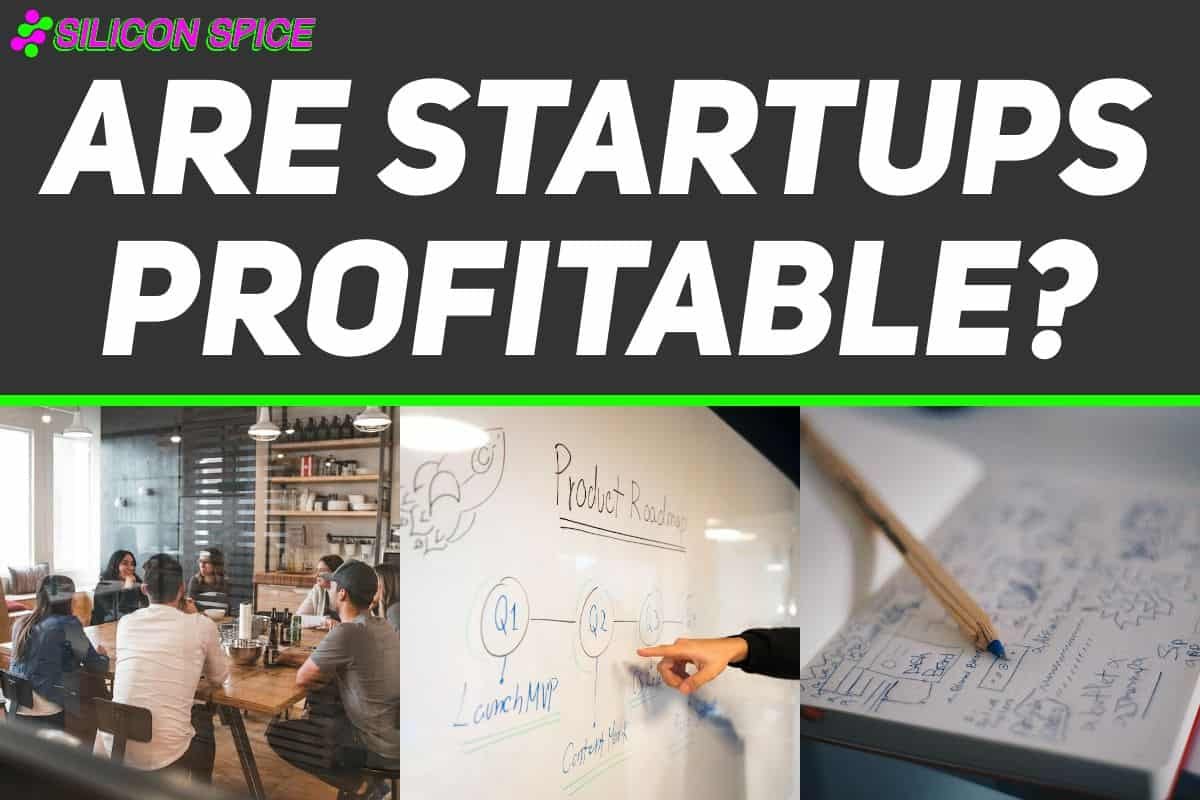When Zipz stepped into the Shark Tank, they weren’t just pitching another product; they were introducing a revolution in the wine industry. Their unique, single-serve wine glass design caught the eye of the Sharks, sparking intrigue and investment talks. It’s been a whirlwind journey since then, with the company navigating the ups and downs of the business world.
Fast forward to today, and everyone’s curious about where Zipz stands after their Shark Tank appearance. Did the Sharks’ investment pay off? How has the company evolved, and what’s next for them? Let’s dive into the latest updates on Zipz and see how they’ve fared in the competitive beverage industry.
Key Takeaways
- Zipz introduced an innovative single-serve wine glass concept on “Shark Tank,” aiming to revolutionize the wine industry by making wine more accessible and enjoyable for casual consumption without compromising quality.
- Kevin O’Leary offered $2.5 million for a 10% stake in Zipz, leading to a strategic partnership that provided the company with crucial capital and industry insight.
- Post-“Shark Tank,” Zipz focused on market and product expansion, leveraging the show’s exposure to secure deals with major retailers and continuously innovating their packaging and wine selection to meet consumer preferences.
- Despite facing challenges such as production scalability, distribution logistics, and navigating regulatory hurdles, Zipz has shown resilience and adaptability, successfully growing their market presence both domestically and internationally.
- Zipz’s journey from a “Shark Tank” pitch to becoming a notable player in the wine industry underscores the importance of innovation, strategic partnerships, and the ability to navigate both opportunities and obstacles in the business world.
History of Zipz
In an episode that had many Shark Tank fans on the edge of their seats, Zipz made a splash with its revolutionary single-serve wine glass concept. The idea was simple yet innovative: to make wine more accessible and convenient for casual consumption without compromising on the quality and experience of enjoying a good glass of wine. This pitch wasn’t just another product; it was a potential game-changer in the beverage industry.
Zipz’s journey began long before they stepped onto the Shark Tank stage. The founders spent years perfecting their product, addressing every possible concern from preserving wine’s integrity to ensuring the packaging was both practical and appealing. Their dedication to their product’s design and functionality reflected a deep understanding of their target market’s needs.
When they finally presented their idea to the Sharks, it was clear they had done their homework. They weren’t just asking for an investment; they were offering a stake in what could be a revolutionary shift in how people consume wine. The episode featuring Zipz was filled with tense negotiation, revealing the risks and challenges of bringing such an innovative product to market. Questions about production costs, retail price points, and patent protection dominated the conversation.
Despite the hurdles, Zipz’s appearance on Shark Tank was a pivotal moment for the company. It wasn’t just about the potential financial investment from the Sharks; it was about the nationwide exposure that could catapult their brand into mainstream consciousness. As the episode concluded, viewers were left wondering what the future would hold for Zipz. Would the Sharks bite, and more importantly, could Zipz deliver on its promises to revolutionize the wine industry?
The Shark Tank Pitch
When the Zipz team stepped onto the Shark Tank stage, they were not just another hopeful entrepreneurial group. They had a well-polished pitch and a unique product that caught the eyes and interests of both the Sharks and the show’s fans. With their innovative single-serve wine glass design, Zipz aimed to revolutionize how wine was consumed, making it more accessible and convenient for events, picnics, and casual gatherings.
The tension in the room was palpable as they began their pitch. Asking for a hefty $2.5 million in exchange for a 10% equity stake, the Zipz team was placing a high bet on their product’s market potential. This was one of the largest asks in the history of Shark Tank, which undoubtedly raised many eyebrows but also signaled the confidence they had in their business.
The Sharks, known for their rigorous scrutinous process, began firing questions at the team. Their inquiries covered a wide range of topics, from the cost of production and patent status to distribution channels and sales figures. Throughout it all, the Zipz team managed to provide concise and solid answers demonstrating their thorough preparation and deep understanding of the business.
One of the most intense moments came when negotiations began. The Sharks saw potential in Zipz, but the valuation and investment amount initially deterred some. However, as discussions continued, it became evident that both sides were keen on striking a deal.
| Shark | Offer |
|---|---|
| Kevin O’Leary | $2.5 million for 10% |
| Others | Initial hesitation, intrigue |
As the negotiation unfolded, viewers were on the edge of their seats, eager to see if Zipz could secure the investment they sought and which Shark would take the bait. The episode not only highlighted the exciting dynamics of the Shark Tank but also showcased the Zipz team’s resilience and ambition.
The Sharks’ Reaction
When the Zipz team stepped onto the Shark Tank stage with their innovative single-serve wine glass, the tension in the room was palpable. They were asking for a whopping $2.5 million for 10% equity, which is no small feat. The Sharks, known for their discerning tastes and tough questions, initially appeared skeptical. Could this product really change the wine industry as we know it?
Mark Cuban, always quick to identify tech and entertainment trends, was the first to show a flicker of interest. The concept of enjoying wine without the commitment to a full bottle intrigued him, showing the product’s potential beyond just the novelty factor. However, he and the other Sharks were concerned about patent protection, market competition, and the scalability of the business model.
Lori Greiner, the queen of QVC, saw immediate potential for Zipz in the retail space. Her keen eye for products that resonate with viewers and consumers highlighted the unique selling proposition of Zipz. The convenience factor and the product’s appeal to casual wine drinkers became a point of discussion.
Kevin O’Leary, affectionately known as Mr. Wonderful, who has a vested interest in the wine industry, was meticulously examining the numbers. He probed into the cost of production, margins, and the company’s valuation. His interest was piqued by the idea of a product that could potentially disrupt traditional wine consumption habits.
Despite their initial reservations, the Sharks began to see the potential of Zipz to carve out a niche in the crowded wine market. As negotiations unfolded, it became evident that they were genuinely considering the idea of partnering with Zipz. Their reactions shifted from skepticism to considering the practical and financial aspects of making Zipz a household name.
The dialogue between the Sharks and the Zipz team was a classic Shark Tank roller coaster of emotions. As they delved deeper into the business’s financials and strategized over market penetration, interest levels fluctuated.
Life After Shark Tank
Life post-Shark Tank has been a rollercoaster for the Zipz team, full of both triumphs and challenges. After their memorable pitch, which had fans and potential investors on the edge of their seats, the company embarked on what can only be described as a whirlwind journey.
Securing the Deal was just the beginning. The investment and partnership with one of the Sharks opened numerous doors for Zipz, including access to invaluable mentorship and a broader network within the retail and beverage industry. These resources proved instrumental in navigating the complexities of scaling a business and refining their product for a wider market.
Market Expansion became a pivotal focus for Zipz. Leveraging the publicity from Shark Tank, the company worked diligently to broaden its distribution channels. They targeted major retailers and explored opportunities in both domestic and international markets. Their efforts paid off, with Zipz Wine becoming more accessible to casual wine drinkers who valued the convenience and novelty of the single-serve glasses.
Product Innovation also continued to be a cornerstone of their strategy. Listening to customer feedback and staying true to their mission of revolutionizing wine consumption, Zipz introduced enhancements to their packaging design and wine selection. This commitment to improvement helped cement their position as a forward-thinking company in a traditionally conservative industry.
As the journey unfolds, the entrepreneurial spirit of the Zipz team remains undiminished. They’re tackling challenges head-on, celebrating successes, and always looking for ways to innovate. For fans of Shark Tank, their story serves as a riveting example of where passion, resilience, and a great pitch can lead. With each step, Zipz is not just navigating the turbulent waters of business but also shaping the future of how we enjoy wine.
Successes and Challenges
Since their notable appearance on “Shark Tank,” Zipz has navigated a sea of successes and challenges. They’ve made significant strides in market penetration, utilizing the momentum from the show to strike deals with major retailers. This move has not only expanded their footprint but has also introduced the Zipz brand to wine enthusiasts and casual drinkers alike. The company’s ability to secure shelf space in prominent stores speaks volumes about their potential and the demand for convenient wine consumption solutions.
Innovation has remained at the forefront of Zipz’s strategy. They’ve continuously worked on enhancing their packaging design to ensure it’s not just functional but also aesthetically pleasing and environmentally friendly. The wine selection has also seen upgrades, with Zipz focusing on offering a broader range of quality wines to cater to diverse consumer preferences. These efforts to elevate the product experience underscore their commitment to innovation and customer satisfaction.
However, the journey hasn’t been without its hurdles. The company faced logistical challenges, from production scalability to distribution. Scaling production to meet the increased demand post-“Shark Tank” presented a learning curve for the Zipz team. Distribution, particularly in international markets, posed its own set of obstacles related to regulations and logistics. These challenges tested the team’s resilience and adaptability.
Navigating financial waters also proved to be a rigorous task. While the investment from “Shark Tank” provided a much-needed boost, managing cash flow and sustaining growth momentum required astute financial planning and execution. The Zipz team has had to be judicious with their resources, balancing between investing in growth and managing operational costs.
Despite these challenges, Zipz’s journey post-“Shark Tank” has been a testament to the team’s tenacity and dedication. They’ve managed to build on the initial buzz, innovate their product line, and tackle obstacles head-on, all while paving their way in the competitive wine industry.
Zipz Today
Since their memorable pitch on Shark Tank, Zipz has not only survived in the competitive wine industry but has also thrived, innovating and expanding their reach. They’ve taken the feedback from the Sharks to heart, using it to fuel their growth and adapt to the changing market.
The deal with Kevin O’Leary, the “Mr. Wonderful” of wine lovers, was a pivotal moment for Zipz. This partnership provided not just capital but also invaluable guidance in navigating the intricacies of the wine and retail industries. They’ve leveraged this to secure their position in the market.
Product Expansion and Design Innovations
Zipz has not rested on its laurels. They’ve expanded their product line to include a variety of wines, catering to a range of tastes and preferences. From bold reds to crisp whites, there’s a Zipz wine for every palate. Moreover, they’ve continued to innovate their packaging, making it even more convenient and eco-friendly. The unique, single-serve design remains, but with improved materials that enhance the wine-drinking experience while being mindful of the environment.
Market Expansion
The company’s market reach has grown impressively. Initially targeting a niche segment, Zipz wines are now available in numerous major retailers across the United States, and they’ve even made inroads into international markets. They’ve managed to navigate the complex distribution channels, making their product accessible to a broader audience.
Challenges and Adaptability
It hasn’t all been smooth sailing for Zipz. They’ve faced challenges, from production scalability to navigating regulatory hurdles in different markets. However, their ability to adapt and pivot when necessary has been key to their success. Whether it’s tweaking their marketing strategy or exploring new distribution channels, Zipz has shown a remarkable capacity to learn from obstacles and turn them into opportunities.
The journey of Zipz post-Shark Tank is a testament to the team’s resilience, innovation, and the strength of the partnership they formed on the show. They continue to push the boundaries, aiming to redefine how we enjoy wine, one sip at a time.
Conclusion
The story of Zipz is a compelling example of innovation, resilience, and strategic partnerships shaping the future of an industry. They’ve not only introduced a novel product but have also continuously evolved to meet market demands and overcome challenges. Their journey from a tense Shark Tank pitch to securing a deal with Kevin O’Leary and expanding their market presence is inspiring. It highlights the importance of persistence, adaptability, and the right mentorship in achieving business success. Zipz’s ability to navigate the ups and downs of the wine industry while keeping their unique selling proposition intact is a testament to their dedication and vision. As they continue to innovate and expand, Zipz remains a fascinating case study in the power of a great idea, coupled with the drive to make it a reality.
Frequently Asked Questions
What is Zipz?
Zipz is a company that introduced a unique, single-serve wine glass design, which aims to revolutionize the wine industry by catering to convenience and eco-friendly packaging.
How did Zipz present their product on Shark Tank?
On Shark Tank, the Zipz team pitched their concept with a well-polished presentation, asking for $2.5 million in exchange for a 10% equity stake, making it one of the largest asks in the show’s history.
Did any of the Sharks show interest in Zipz?
Yes, several Sharks showed interest in Zipz. Mark Cuban was intrigued by the concept’s potential, Lori Greiner saw immediate retail possibilities, and Kevin O’Leary was interested in the product’s ability to disrupt traditional wine consumption habits.
What was the outcome of Zipz’s pitch on Shark Tank?
Zipz secured a deal with Kevin O’Leary, despite the initial skepticism and intense negotiations with the Sharks. This partnership opened doors for mentorship and expanded their network within the retail and beverage industry.
How has Zipz grown since appearing on Shark Tank?
Since their appearance, Zipz has made significant strides in market penetration, striking deals with major retailers, enhancing their packaging design, offering a broader range of quality wines, and expanding into international markets. However, they’ve also faced challenges in production scalability and financial management.
What challenges has Zipz faced post-Shark Tank?
Post-Shark Tank, Zipz faced challenges including production scalability, distribution limitations, regulatory hurdles in different markets, and financial management issues. However, they’ve managed to adapt and pivot when necessary to overcome these obstacles.
What makes Zipz unique in the wine industry?
Zipz’s unique single-serve wine glass design, focus on eco-friendly packaging, continuous product innovation, and expansion into a variety of wines cater to a broad market, setting them apart in the wine industry.










